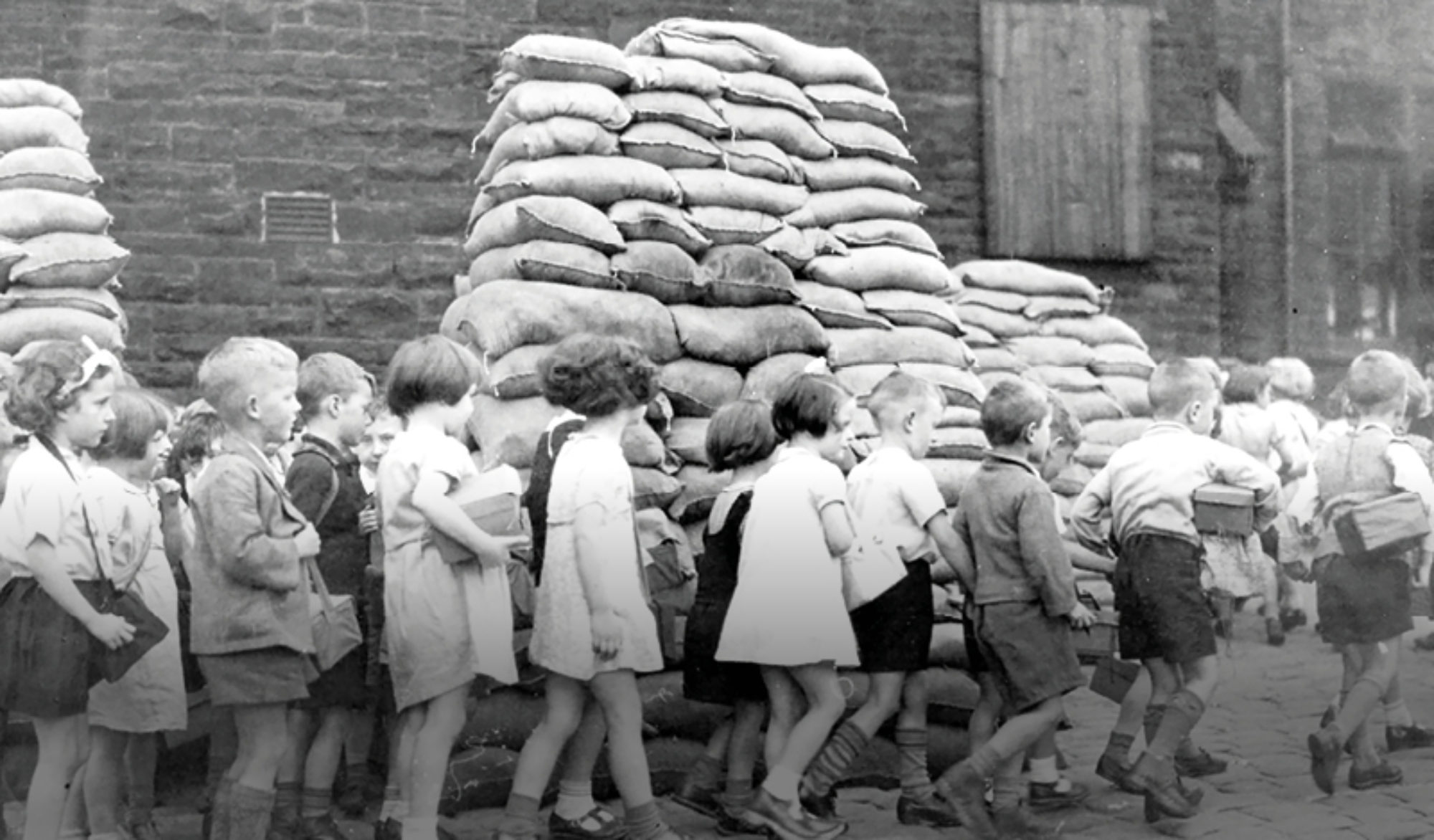WWII East Lancashire Childhoods: Sharing Stories, Making Memories is an inter-generational community arts project which brings together old and young residents of East Lancashire. The project creates opportunities for interaction between children and care home residents where participants focus on childhood experiences during wartime and stories of the Home Front from the perspective of those who were children during WWII. Our aim is to preserve the rich cultural histories from this period and to bring those experiences to life for people to hear stories and ask questions first hand.
The impetus for the project came from the fact that 2020 sees the 75th anniversary of VE day. By asking older residents to share their experiences we hope that children and younger people will develop a deeper awareness and understanding of what war was like for the children who lived through it. Research suggests that interaction between old and young can help to improve intergenerational connections and help older people to have ‘increased dignity and respect, increased compassion, increased mental stimulation, and reduced social isolation” (Pennington et al, 2018).
Intergenerational interaction is also a means of improving self-worth and cognitive health in older people, whereas younger people develop improved attitudes and reduced negative perceptions of older adults (Drury, Abrams and Swift, 2017).
The project captures and preserves the voices of our participants as a legacy for future generations before that generation of people is lost forever. The importance and impact of WWII is unquestionable for those directly affected by it but for post-war generations, there can be a lack of understanding or awareness of how this event changed and shaped people’s lives (in positive and negative ways). This is true even within families where wartime children who are now adults have not discussed WWII with their families; many would have had parents who fought in the war (or were part of the home front) but did not discuss what happened. There is now a diminishing population who can contribute to capturing these wartime childhood stories, putting this rich heritage at risk. The impact of such stories cannot be under-estimated in terms of impact on current generations.
We hope that you will enjoy reading these stories as much as we have enjoyed listening to them and sharing them with you.
Sandra and Val
Project Leads
Contact:
smallstories@blackburn.ac.uk

